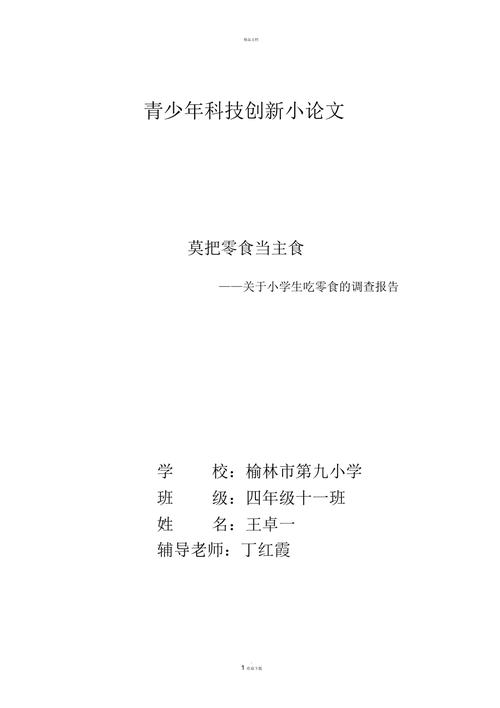
大小:
下载:298次
分类:业界新科技
手机扫码免费下载
纠错留言#科技小论文简介
Exploring the Impact of Artificial Intelligence on Healthcare

In recent years, the integration of artificial intelligence (AI) in the healthcare industry has been a topic of increasing interest and discussion. AI, with its ability to analyze vast amounts of data and identify patterns, has the potential to revolutionize healthcare delivery, diagnosis, treatment, and patient outcomes. This paper aims to explore the impact of AI on healthcare and discuss the opportunities and challenges it presents.
One of the most significant applications of AI in healthcare is in diagnostics. AIpowered diagnostic tools can analyze medical images, such as Xrays and MRIs, with high accuracy and efficiency. These tools can assist radiologists in detecting abnormalities and diseases at an early stage, leading to timely interventions and improved patient outcomes.
AI enables the development of personalized treatment plans based on an individual's genetic makeup, lifestyle factors, and medical history. This approach, known as precision medicine, can enhance treatment efficacy, reduce adverse effects, and optimize patient care. AI algorithms can analyze complex datasets to identify the most effective treatment for a specific patient, leading to better health outcomes.
AIpowered devices and applications allow for remote monitoring of patients, enabling healthcare providers to track vital signs, detect changes in health status, and intervene proactively. Telehealth services powered by AI facilitate virtual consultations, diagnosis, and treatment, expanding access to healthcare services and improving patient convenience.
AI accelerates the drug discovery process by predicting drugtarget interactions, analyzing molecular structures, and identifying potential drug candidates. Machine learning algorithms can sift through vast amounts of biological data to discover new therapeutic opportunities and shorten the timeline for drug development. AIdriven drug discovery holds promise for accelerating the development of novel treatments for various diseases.
While the potential benefits of AI in healthcare are substantial, ethical and regulatory challenges must be addressed. Issues such as data privacy, algorithm transparency, bias in AI algorithms, and accountability pose significant concerns. Healthcare organizations and policymakers need to establish robust guidelines and frameworks to ensure the ethical and responsible use of AI in healthcare.
The future of AI in healthcare is promising, with ongoing advancements in technology and research. As AI continues to evolve, its integration into healthcare systems will expand, offering new possibilities for improved diagnostics, treatment, and patient care. Collaborations between healthcare professionals, researchers, technologists, and policymakers are essential to harness the full potential of AI in transforming the healthcare landscape.
In conclusion, the integration of artificial intelligence in healthcare represents a paradigm shift in the way healthcare services are delivered and patients are treated. By leveraging AI technologies effectively and addressing the associated challenges, the healthcare industry can harness the power of datadriven insights to enhance patient outcomes, improve operational efficiency, and advance medical research.
